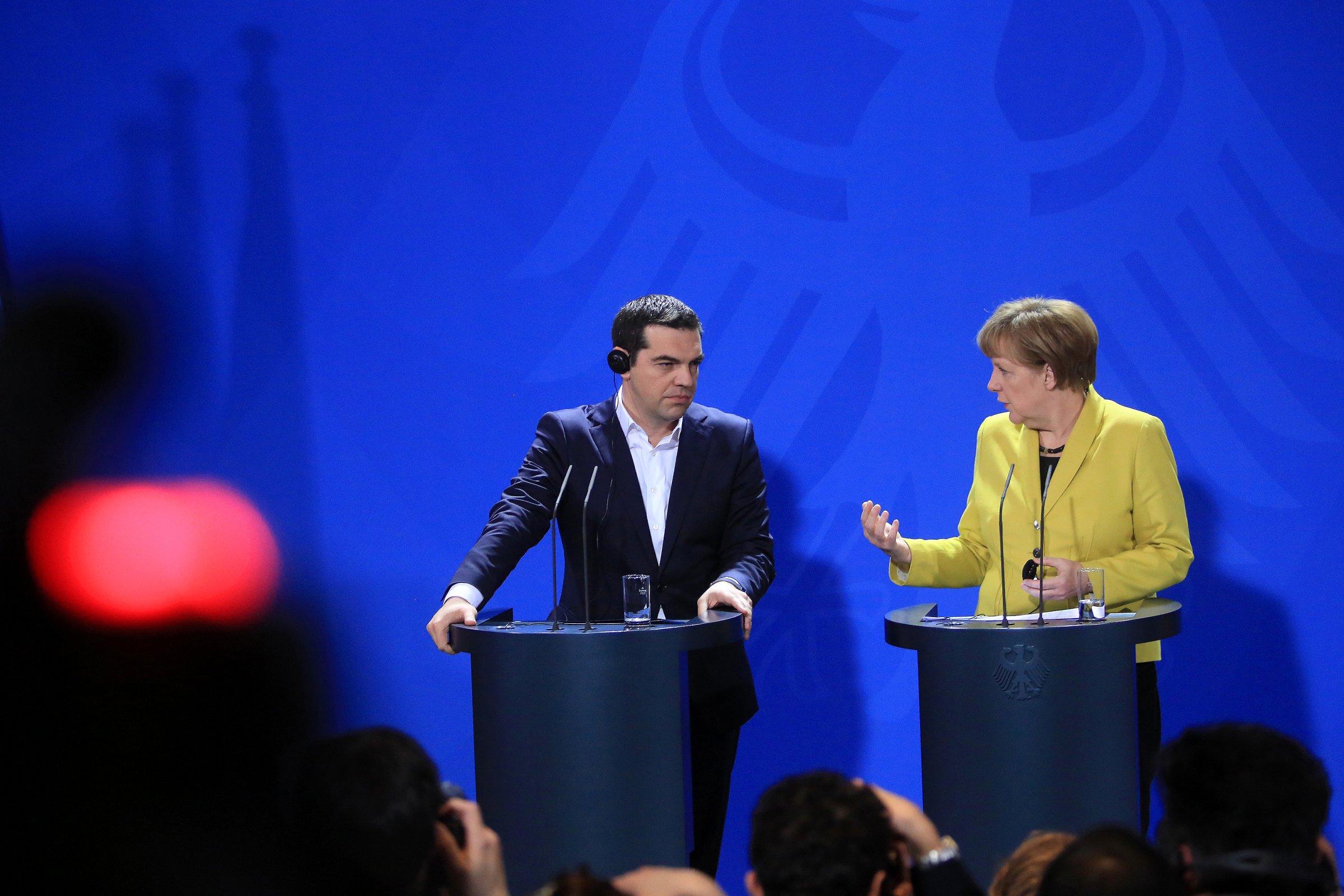
Greece’s fate, and possibly the fate of Europe’s signature project on integration for the last 25 years, is about to be decided this weekend.
Hopes of a breakthrough on Friday were dashed after the Greek government rejected an offer from its creditors to extend the country’s current bailout deal for another five months if it agreed to further tax raises and spending cuts, largely in the area of pensions.
It’s now up to the Eurogroup — the Finance Ministers of the 19 Eurozone members — to thrash something out at a meeting on Saturday in Brussels. The talks have been moved up by two hours to start at 1400 local time (0800 ET), anticipating another marathon session of haggling over the fine points.
Prime Minister Alexis Tsipras left a two-day summit meeting with other European heads of government still thundering against “blackmails and ultimatums,” after what German Chancellor Angela Merkel described earlier as a “very generous offer.”
Under the offer, Greece would get extended access to some €15.5 billion to cover its budget spending and debt repayments. None of this represents additional money from the lenders, as some €8.7 billion is being repurposed after having been earmarked formerly for bank recapitalizations. The money would be more than enough to cover big debt repayments to the IMF and European Central Bank over the next month.
But there’s a problem: According to Reuters, the offer is based on a new paper prepared by technocrats who still refuse to acknowledge Greece’s key point: that its debt burden, at over 180% of gross domestic product, is unsustainable (the draft glosses over the debt/GDP trajectory to focus on “gross financing needs,” which it says are manageable.)
It got some support from Washington Friday, as even Treasury Secretary Jack Lew weighed in, saying that debt relief “must be part of the conversation.” But the Eurozone’s leaders, from Angela Merkel down, have all said this week that’s not an option until Athens has made the reforms it promised to make under the existing bailout.
If the past five years of Eurozone meetings is any guide, it’s almost certain that the Eurogroup will strike a deal of some kind in principle deep into Saturday night/Sunday morning.
The real crunch will come when the agreement is passed to parliaments for their approval — the most important vote being in Athens, where a large number of Tsipras’ own party have sworn to vote against any new measures, in line with their electoral mandate.
If the deal isn’t endorsed by lawmakers on Monday, Greece will default on Tuesday, a day when it has to pay €1.55 billion to the IMF (and a bit more in public-sector wages and pensions).
Tuesday is also the day when the current bailout agreement expires. At that point, if there is no deal to prolong it, the European Central Bank (according to its own rules) will be effectively forced to withdraw its lifeline to the Greek banking system.
It’s going to be an interesting weekend.
More Must-Reads from TIME
- Why Trump’s Message Worked on Latino Men
- What Trump’s Win Could Mean for Housing
- The 100 Must-Read Books of 2024
- Sleep Doctors Share the 1 Tip That’s Changed Their Lives
- Column: Let’s Bring Back Romance
- What It’s Like to Have Long COVID As a Kid
- FX’s Say Nothing Is the Must-Watch Political Thriller of 2024
- Merle Bombardieri Is Helping People Make the Baby Decision
Contact us at letters@time.com